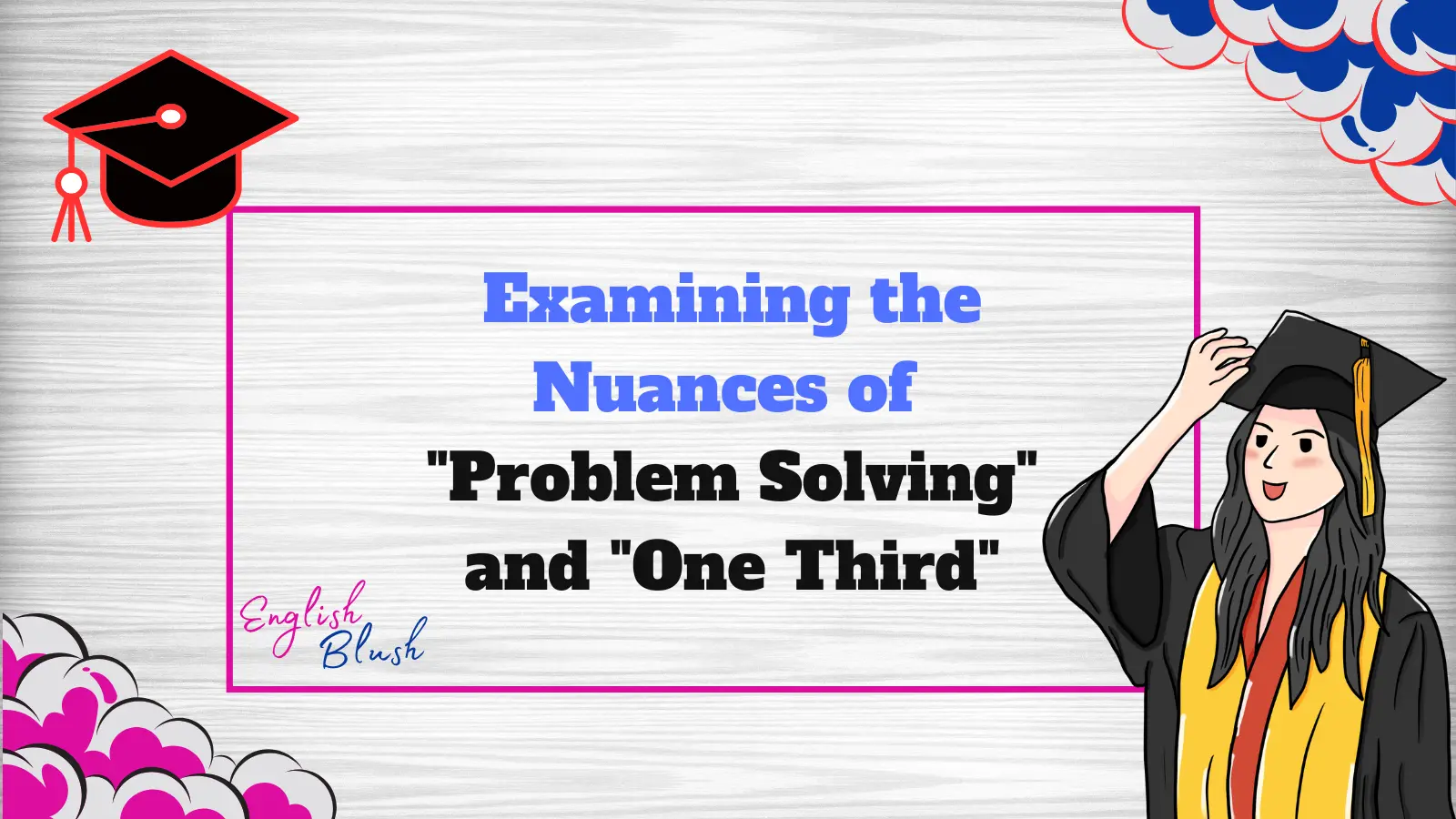Problem Solving or Problem-Solving? It’s important to grasp the subtle differences between these forms and their correct usage. Words often change their meaning, spelling, or punctuation depending on whether they are used as a noun, adjective, or verb. Understanding this ensures that your writing is precise and clear. Let’s dive deeper into both terms and their forms.
“Problem Solving” vs. “Problem-Solving”
When discussing Problem Solving or Problem-Solving, understanding whether it’s a noun, verb, or adjective affects its spelling and meaning. Below are the distinctions and examples of each:
1. Problem Solving (Noun)
As a noun, “Problem Solving” refers to the process or act of finding solutions to issues or challenges. It is used to describe the activity itself. When written as two words, it’s generally considered a compound noun.
Correct usage:
- Problem solving is a critical skill in business.
- She excels in problem solving when faced with tough tasks.
Incorrect usage:
- Problem-solving is a critical skill in business.
(This is incorrect because “problem-solving” should be hyphenated only when it’s used as an adjective, not a noun.) - I will start problem solving my way through this. (Here the term is used incorrectly as a verb, and “problem-solving” is not fitting.)
2. Problem-Solving (Adjective)
When “Problem-Solving” is hyphenated, it typically acts as an adjective, describing a skill or attribute. In this case, you are not referring to the act itself but rather to an ability to approach and solve problems.
Correct usage:
- She demonstrated excellent problem-solving skills.
- Problem-solving techniques help develop solutions for complex situations.
Incorrect usage:
- The problem solving process took longer than expected. (Here, “problem solving” is used incorrectly. It should be “problem-solving” when describing a skill or technique.)
- It was a great problem-solving experience.
(This is redundant because the hyphen should not be used if referring to experience directly.)
3. Problem Solving (Verb)
While “problem solving” is mainly used as a noun or adjective, it can occasionally appear in verb phrases but rarely in pure form. Here, it would typically involve specific actions that describe someone engaged in the activity.
Correct usage:
- She is problem solving all day to find the best answer.
- Teams work together to problem solve complex issues.
Incorrect usage:
- We were problem-solving the questions last night. (Not incorrect in grammar, but the construction is awkward; use “problem solve” as the verb form.)
4. One-Third vs. One Third
The same attention to detail is required when discussing how to write One-Third and One Third. In some cases, writers mistakenly forget to add a hyphen or use it incorrectly. Below we explore the nuances of both uses.
One-Third (Correct)
When referring to a fraction, especially when used as an adjective or noun, One-Third is written with a hyphen. The hyphen links the number to the noun it is modifying, making the term clearer and more readable.
Correct usage:
- One-third of the team was absent during the meeting.
- I will take one-third of the pie for myself.
- After splitting, each person received one-third of the total amount.
One Third (Incorrect)
Leaving the hyphen out here can lead to confusion or make the meaning unclear. One Third as two separate words is grammatically incorrect unless used in a context where the meaning is very clear, but even then, it isn’t recommended.
Incorrect usage:
- One third of the books were new. (Incorrect—missing hyphen creates ambiguity.)
- We divided it into one third portions. (Again, should be hyphenated as “one-third.”)
One Third as a Verb Phrase
It is important to note that One Third does not serve as a verb phrase, so using it in this way is completely wrong. The proper form for a verb is “to divide into thirds” or “splitting into one-third.” Using “one third” as a verb will confuse the reader or listener.
Correct usage:
- I will divide it into one-third portions.
- We split the amount one-third each.
When Are Each of These Forms Correct?
It’s crucial to observe consistency in writing to ensure clarity. Correct use of punctuation (hyphens) and structure allows your audience to interpret your message without unnecessary confusion. While there might be slight regional differences (US versus UK English), both generally adhere to the same principles regarding these examples:
Summary of Key Points
- Problem Solving or Problem-Solving?
- Use “Problem Solving” as a noun to describe the process of finding solutions.
- Use “Problem-Solving” as an adjective to describe skills, techniques, or approaches.
- Always hyphenate when the term functions as an adjective.
- One Third or One-Third?
- One-Third is correct when expressing fractions or part of a whole, both in nouns and adjectives.
- Avoid using “One Third” without a hyphen.
- Be cautious not to treat one third as a verb phrase, as this would be grammatically incorrect.
- US vs. UK English
- The rules for these terms are generally consistent across both US and UK English. The primary difference might be in preference for compound words or the way they are used in formal writing. But fundamentally, the need for precision, especially regarding punctuation and correct word use, remains the same.
Why Grammar and Consistency Matter
Adhering to these grammatical rules ensures clear communication. Spelling, punctuation, and word choice should reflect careful thought, which provides both precision and clarity. Whether you’re writing an academic paper, sending a professional email, or drafting casual content, proper word usage builds credibility and reduces ambiguity. This also ensures that readers from different regions (UK or US) receive the same accurate message, highlighting the importance of consistency and correctness.
By following these grammar guidelines and understanding the importance of hyphenation in problem-solving and one-third situations, you’ll be more proficient in producing clear, polished writing that can be understood by anyone, anywhere.





